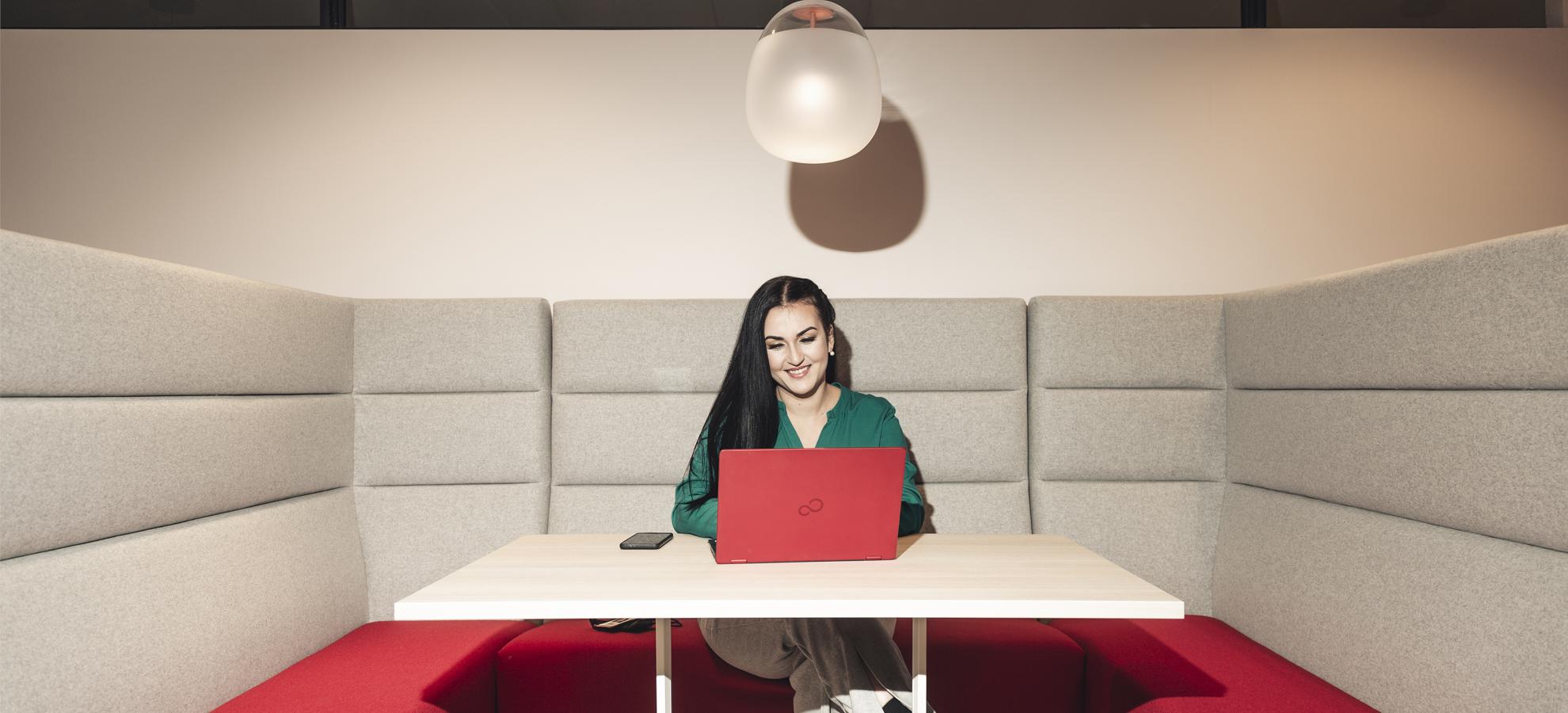
You’ve worked at Fujitsu’s Helsinki office for four years, ever since relocating to Helsinki from the company’s Estonian office. What made you move to Helsinki?
I worked for Fujitsu in Estonia for three years and was pursuing a master’s degree at Tallinn University at the same time. I knew that I would want a change after completing my degree, as I wanted an opportunity to develop myself.
I made monthly business trips to Helsinki – our neighbouring city just a short sea journey away – but the idea of moving to Finland came from my son. I started thinking about the idea, and I spoke about it with my Finnish supervisor, who had had the same idea.
I believe that my contribution had been noticed and was appreciated at the Helsinki end, and when I received a job offer, I decided to relocate to Finland with my three children.
You have been constantly progressing to new duties at work. How have you done that?
My current title is Head of Global Accounts and Account Support Services, which is my fifth position at Fujitsu. I manage three teams and altogether 19 people. I enjoy my work, which includes developing our product services and customer experience, and I’m responsible for our business profitability. I’ve been given the freedom to make decisions and to develop operations according to my own ideas.
I have continued to develop myself constantly and consciously in line with my vision, for example, in order to improve the employee experience of our people. This is important for me, also because it was my area of specialisation at university.
What was it like to move to Finland?
Every time I visited Helsinki, I wondered why I felt so good in the city, feeling zen here. Even as a child in Estonia, I had a feeling that I didn’t belong there, but I felt at home in Finland. I didn’t understand why.
Perhaps it was because my grandmother came from a Finnish ethnic minority in Russia – the Ingrians. She spoke five languages, and when I was a child, my father told me to also learn five languages – which is what I did.
It’s more peaceful in Finland than in Estonia. This is evident in people’s mindsets and perhaps in the way that society works here. Peacefulness brings balance to life and teaches you to pause. Those qualities have been useful to me, as I try to improve myself all the time.
Was it easy for you to adjust to Finland and the Helsinki workplace culture?
Slowness and peacefulness can sometimes be negative qualities. When I moved to Finland, e-services were not as developed here as they are now. I was familiar with the Finnish workplace culture, but as I was accustomed to a faster-paced working environment in Estonia, I tried to energise my colleagues.
At first, it was challenging to be a person everybody knew but a new employee at the same time. Trust comes with time with Finns, and often you have to work to earn it.
How well can one combine career and family life in Finland?
First of all, salaries are higher in Helsinki than in Estonia, where you have to fight more for yourself. I’ve witnessed in my work that women and men have equal opportunities in Helsinki to succeed in their duties. I also enjoy a great deal of freedom in my work and in using my time.
If my child is taken ill, it doesn’t cause any additional stress for me, and I turn on my computer when I can. At school, children are supported in their learning a great deal: there are teaching and special needs assistants as needed, and there isn’t as much homework as in Estonia. Some of the main themes in kindergarten and school include learning teamwork, collaboration and consideration for other people.
In Estonia, we could spend hours every night studying with our children. Here children can be children for longer, as they can engage in various activities after school and do other things than homework. It spares me a lot of stress as a mother. Finland is definitely the best place for children, and overall people’s wellbeing is very important here.
Kristel Lillepalu’s recommendations for working life in Finland
- You should first evaluate your development needs in order to map out a route to achieve your goals. Good language skills and appropriate education are important, as they increase your opportunities to succeed. Myself, I learned Finnish by speaking the language at work.
- Integration into the Finnish culture takes patience. You should have respect for your new country and its culture, and you should put an effort into learning the culture.
- You must accept the slow Finnish way of life and deliberative working methods. I’ve learned to slow down and to pause. This helps to control stress. It’s important to find a balance that suits you best.
